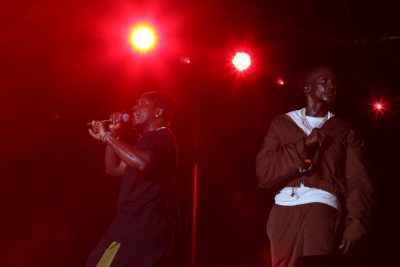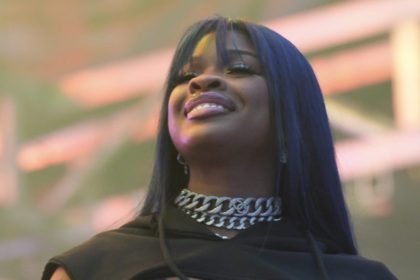The pop star’s genuine connection to Black culture reveals his authentic self
In the glittering world of pop stardom, authenticity can be the first casualty of fame. For Justin Bieber, the journey from YouTube sensation to global superstar has been marked by both spectacular achievements and personal struggles. However, recent observations suggest that Bieber’s most genuine moments of joy emerge when he’s immersed in Black cultural spaces, sparking conversations about identity, belonging and the intersections of music communities.
The weight of early fame
The burden of childhood stardom. When Scooter Braun discovered a 13-year-old Bieber on YouTube and introduced him to Usher, few could have predicted the meteoric rise that followed. As his breakout hit “Baby” dominated charts worldwide, Bieber became the teen idol of a generation. However, the machinery of fame exacted a heavy price on the young Canadian performer.
In recent years, Bieber has grown increasingly transparent about his emotional struggles. In March 2024, he shared introspective thoughts on social media that revealed persistent feelings of unworthiness despite his achievements. Public appearances showed a subdued Bieber, with fans expressing concern about his withdrawn demeanor and apparent unhappiness.
A revealing celebration
Unexpected joy emerges. The narrative shifted dramatically in April when footage emerged of Bieber at hip-hop artist Sexyy Red’s birthday celebration. The video captured a transformed Bieber – dancing exuberantly in a stylish fur coat, his face lit with genuine laughter. The stark contrast between this jubilant figure and his recent public persona prompted immediate reaction across social platforms.
Observers noted that Bieber appeared not just happy but completely at ease in this environment. The authenticity of his joy triggered a cascade of commentary from fans who recognized that this wasn’t merely a celebrity at a party but someone who had found their comfortable space.
Cultural resonance
Finding home in hip-hop. Bieber‘s musical evolution has long suggested an affinity for Black musical traditions. His 2013 album “Journals” represented a significant artistic pivot, embracing R&B sounds and featuring collaborations with prominent hip-hop artists including Chance the Rapper and Lil Wayne. The project garnered particular appreciation from R&B enthusiasts who recognized his sincere engagement with the genre beyond surface-level appropriation.
This musical direction wasn’t merely a strategic career move but appeared to reflect genuine artistic preferences. Some followers observed that “Journals” seemed specifically crafted for listeners immersed in Black music culture, suggesting Bieber was creating music aligned with his personal tastes rather than commercial calculations.
Authentic community connections
Beyond industry relationships. Perhaps most telling are the unscripted moments that reveal Bieber‘s comfort within Black cultural spaces. An often-referenced incident occurred when his vehicle broke down in Compton, California. Rather than displaying discomfort or urgency to leave, witnesses described Bieber’s natural engagement with local residents, sharing moments of spontaneous connection that transcended his celebrity status.
These interactions suggest that Bieber’s relationship with Black culture extends beyond professional collaborations or stylistic influences to genuine personal affinity. In these settings, the guardedness that often characterizes his public appearances seems to dissolve, replaced by unfiltered enjoyment.
The Usher influence
A formative mentorship. Central to understanding Bieber’s cultural connections is his relationship with Usher Raymond IV, who served as both professional mentor and personal guide during Bieber’s formative years in the industry. Their bond transcended typical artist-mentor dynamics to become something Bieber himself has described in familial terms.
Their 2011 Grammy Awards performance stands as a testament to this connection, with the established R&B star and his protégé demonstrating musical chemistry and personal rapport. This relationship provided Bieber not just with career guidance but with authentic access to Black musical traditions and cultural contexts.
Beyond appropriation debates
Cultural appreciation versus exploitation. The discourse surrounding white artists who engage with Black musical traditions often defaults to accusations of appropriation or exploitation. However, Bieber’s case presents nuances that resist simplistic categorization. His earliest musical development occurred under Usher’s guidance, providing cultural context and education rather than mere imitation.
Moreover, his consistent collaboration with Black artists, producers and musicians suggests a relationship of mutual creative exchange rather than unidirectional borrowing. The joy he exhibits in Black cultural spaces appears genuine rather than performative, suggesting personal affinity rather than calculated adoption.
The search for authenticity
Finding freedom beyond constraints. What makes Bieber’s visible happiness in these settings particularly noteworthy is its contrast with his demeanor in more mainstream entertainment contexts. In standard celebrity environments, he often appears constrained, conscious of expectations and image management. When surrounded by hip-hop artists and immersed in Black cultural settings, these constraints seem to fall away.
This pattern suggests that he may experience these spaces as freeing – environments where he can engage without the full weight of pop stardom expectations. For someone who has spent most of his life navigating the demands of global celebrity, such authentic connection represents a rare opportunity for unguarded expression.
Mental health implications
Cultural belonging as emotional support. Beyond entertainment industry narratives, Bieber’s experience highlights important considerations about cultural connection and mental wellbeing. His documented struggles with depression and anxiety contrast sharply with the unfiltered joy he displays in certain cultural contexts, suggesting that genuine cultural belonging may serve protective emotional functions.
For young celebrities whose identities developed under intense public scrutiny, finding spaces that allow authentic self-expression can be crucial for psychological health. His visible transformation in these settings indicates that cultural connection may provide emotional sustenance that fame and fortune cannot.
As Justin Bieber continues navigating his complex relationship with fame, these glimpses of genuine joy offer hopeful indicators that beneath the carefully managed public persona exists an individual still capable of authentic connection. His journey serves as a reminder that across divides of fame, fortune and cultural background, the human need for belonging and acceptance remains universal.














